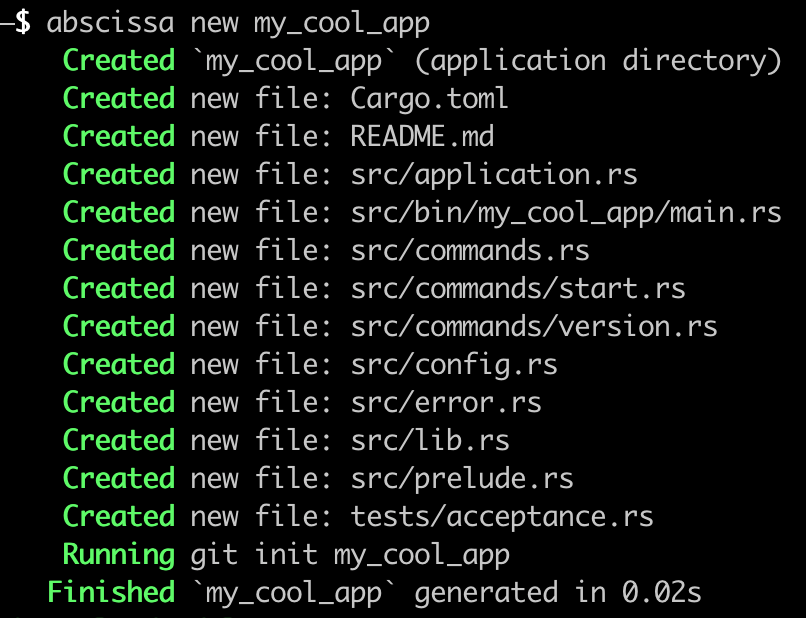tokio-context
Provides two different methods for cancelling futures with a provided handle for cancelling all related futures, with a fallback timeout mechanism. This is accomplished either with the Context API, or with the TaskController API depending on a users needs.
Context
Provides Golang like Context functionality. A Context in this respect is an object that is passed around, primarily to async functions, that is used to determine if long running asynchronous tasks should continue to run, or terminate.
You build a new Context by calling its new constructor, which returns the new Context along with a Handle. The Handle can either have its cancel method called, or it can simply be dropped to cancel the context.
Please note that dropping the Handle will cancel the context.
If you would like to create a Context that automatically cancels after a given duration has passed, use the with_timeout constructor. Using this constructor will still give you a handle that can be used to immediately cancel the context as well.
Examples
use tokio::time;
use tokio_context::context::Context;
use std::time::Duration;
async fn task_that_takes_too_long() {
time::sleep(time::Duration::from_secs(60)).await;
println!("done");
}
#[tokio::main]
async fn main() {
// We've decided that we want a long running asynchronous task to last for a maximum of 1
// second.
let (mut ctx, _handle) = Context::with_timeout(Duration::from_secs(1));
tokio::select! {
_ = ctx.done() => return,
_ = task_that_takes_too_long() => panic!("should never have gotten here"),
}
}
While this may look no different than simply using tokio::time::timeout, we have retained a handle that we can use to explicitly cancel the context, and any additionally spawned contexts.
use std::time::Duration;
use tokio::time;
use tokio::task;
use tokio_context::context::Context;
async fn task_that_takes_too_long(mut ctx: Context) {
tokio::select! {
_ = ctx.done() => println!("cancelled early due to context"),
_ = time::sleep(time::Duration::from_secs(60)) => println!("done"),
}
}
#[tokio::main]
async fn main() {
let (_, mut handle) = Context::new();
let mut join_handles = vec![];
for i in 0..10 {
let mut ctx = handle.spawn_ctx();
let handle = task::spawn(async { task_that_takes_too_long(ctx).await });
join_handles.push(handle);
}
// Will cancel all spawned contexts.
handle.cancel();
// Now all join handles should gracefully close.
for join in join_handles {
join.await.unwrap();
}
}
Contexts may also be chained by using the with_parent constructor in conjunction with RefContexts. Chaining a context means that the context will be cancelled if a parent context is cancelled. A RefContext is simple a wrapper type around an Arc
with an identical API to Context. Here are a few examples to demonstrate how chainable contexts work:
use std::time::Duration;
use tokio::time;
use tokio::task;
use tokio_context::context::RefContext;
#[tokio::test]
async fn cancelling_parent_ctx_cancels_child() {
// Note that we can't simply drop the handle here or the context will be cancelled.
let (parent_ctx, parent_handle) = RefContext::new();
let (mut ctx, _handle) = Context::with_parent(&parent_ctx, None);
parent_handle.cancel();
// Cancelling a parent will cancel the child context.
tokio::select! {
_ = ctx.done() => assert!(true),
_ = tokio::time::sleep(Duration::from_millis(15)) => assert!(false),
}
}
#[tokio::test]
async fn cancelling_child_ctx_doesnt_cancel_parent() {
// Note that we can't simply drop the handle here or the context will be cancelled.
let (mut parent_ctx, _parent_handle) = RefContext::new();
let (_ctx, handle) = Context::with_parent(&parent_ctx, None);
handle.cancel();
// Cancelling a child will not cancel the parent context.
tokio::select! {
_ = parent_ctx.done() => assert!(false),
_ = async {} => assert!(true),
}
}
#[tokio::test]
async fn parent_timeout_cancels_child() {
// Note that we can't simply drop the handle here or the context will be cancelled.
let (parent_ctx, _parent_handle) = RefContext::with_timeout(Duration::from_millis(5));
let (mut ctx, _handle) =
Context::with_parent(&parent_ctx, Some(Duration::from_millis(10)));
tokio::select! {
_ = ctx.done() => assert!(true),
_ = tokio::time::sleep(Duration::from_millis(7)) => assert!(false),
}
}
The Context pattern is useful if your child future needs to know about the cancel signal. This is highly useful in many situations where a child future needs to perform graceful termination.
In instances where graceful termination of child futures is not needed, the API provided by TaskController is much nicer to use. It doesn't pollute children with an extra function argument of the context. It will however perform abrupt future termination, which may not always be desired.
TaskController
Handles spawning tasks which can also be cancelled by calling cancel on the task controller. If a std::time::Duration is supplied using the with_timeout constructor, then any tasks spawned by the TaskController will automatically be cancelled after the supplied duration has elapsed.
This provides a different API from Context for the same end result. It's nicer to use when you don't need child futures to gracefully shutdown. In cases that you do require graceful shutdown of child futures, you will need to pass a Context down, and incorporate the context into normal program flow for the child function so that they can react to it as needed and perform custom asynchronous cleanup logic.
Examples
use std::time::Duration;
use tokio::time;
use tokio_context::task::TaskController;
async fn task_that_takes_too_long() {
time::sleep(time::Duration::from_secs(60)).await;
println!("done");
}
#[tokio::main]
async fn main() {
let mut controller = TaskController::new();
let mut join_handles = vec![];
for i in 0..10 {
let handle = controller.spawn(async { task_that_takes_too_long().await });
join_handles.push(handle);
}
// Will cancel all spawned contexts.
controller.cancel();
// Now all join handles should gracefully close.
for join in join_handles {
join.await.unwrap();
}
}
License: MIT


